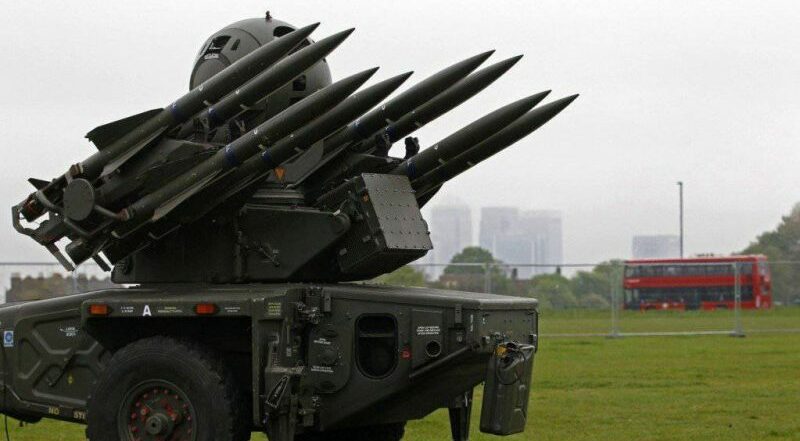Switzerland disposes of its anti-aircraft systems instead of transferring to Ukraine

Фото: З відкритих джерел
Swiss government disposes of the state's anti-aircraft weapons, which include 60 systems.
The first batch of Rapira systems has been removed, NZZ reports.
"It is planned that all systems will be dismantled and disposed of as part of these other batches," Kaj-Gunnar Sievert, the spokesman for the federal defense procurement office Armasuisse, said.
The Swiss army bought Rapira systems in the 1980s. The installation includes a launch pad and a radar system.
In 2007, the federal government again invested heavily in modernization when the Army purchased 2,000 modern guided missiles. They are also now being scrapped because Switzerland is decommissioning the Rapier from the end of 2022.
"Missiles are old but not quite obsolete," says Peter Schneider, former editor-in-chief of the Allgemeine Schweizerische Militaerzeitschrift (ASMZ).
The British defended the Olympic Games in London in 2012 with the help of the Rapiras.
"They can be very well used against low-flying targets such as drones," says a military expert.
Rapira could've been used to shoot down drones and aircraft in Ukraine.
Schneider says this way, Ukraine could defend its critical infrastructure.
The disposal is causing a backlash among security policymakers.
"It is absurd that we are disposing of defensive weapons in Switzerland," says Francois Pointet, a member of the National Council from the Green Liberals.
He supports transferring arms to Ukraine. As the vice-president of the Security Policy Commission emphasizes, it would be legally possible.
Rapier is a British-made anti-aircraft system. Therefore, completely different rules apply to systems than to Swiss guns.
According to a 2006 decision by the Federal Council, foreign systems that have been decommissioned must be sold back to the country of origin as a matter of priority.
And as the Federal Council directly emphasizes in its decision: "Without any conditions." Switzerland should not demand a ban on re-exports.
However, as noted, Bern did not receive a corresponding request from London. The federal government decided to dispose of the Rapiers in 2019. He never asked if England was interested in them – even after the start of the war, as Armasuisse confirms.
"It is not typical for Switzerland to actively offer decommissioned military systems for sale," Kaj-Gunnar Sievert, the spokesman for the federal defense procurement office Armasuisse, said.
Great Britain phased out the Rapira missiles in 2021.
The British Ministry of Defense said in response to a request that they disposed of all the missiles even before the start of the full-scale war. The disposal later drew criticism on the island. The main thesis was that these weapons could help Ukraine.
The Rapira case highlights a fundamental problem: Switzerland will decommission many foreign weapons systems in the next few years.
For example, 248 M113 infantry fighting vehicles and over 100 M109 artillery guns. Both systems are American products, and both are on the front line in Ukraine.
Earlier, it became known that the Swiss government will not change its long-standing policy prohibiting the transfer of Swiss-made weapons to third countries, in particular to Ukraine.
On March 8, the lower house of the Swiss parliament confirmed that the transfer of Swiss tank ammunition to Ukraine at the request of Berlin should remain prohibited.






















































